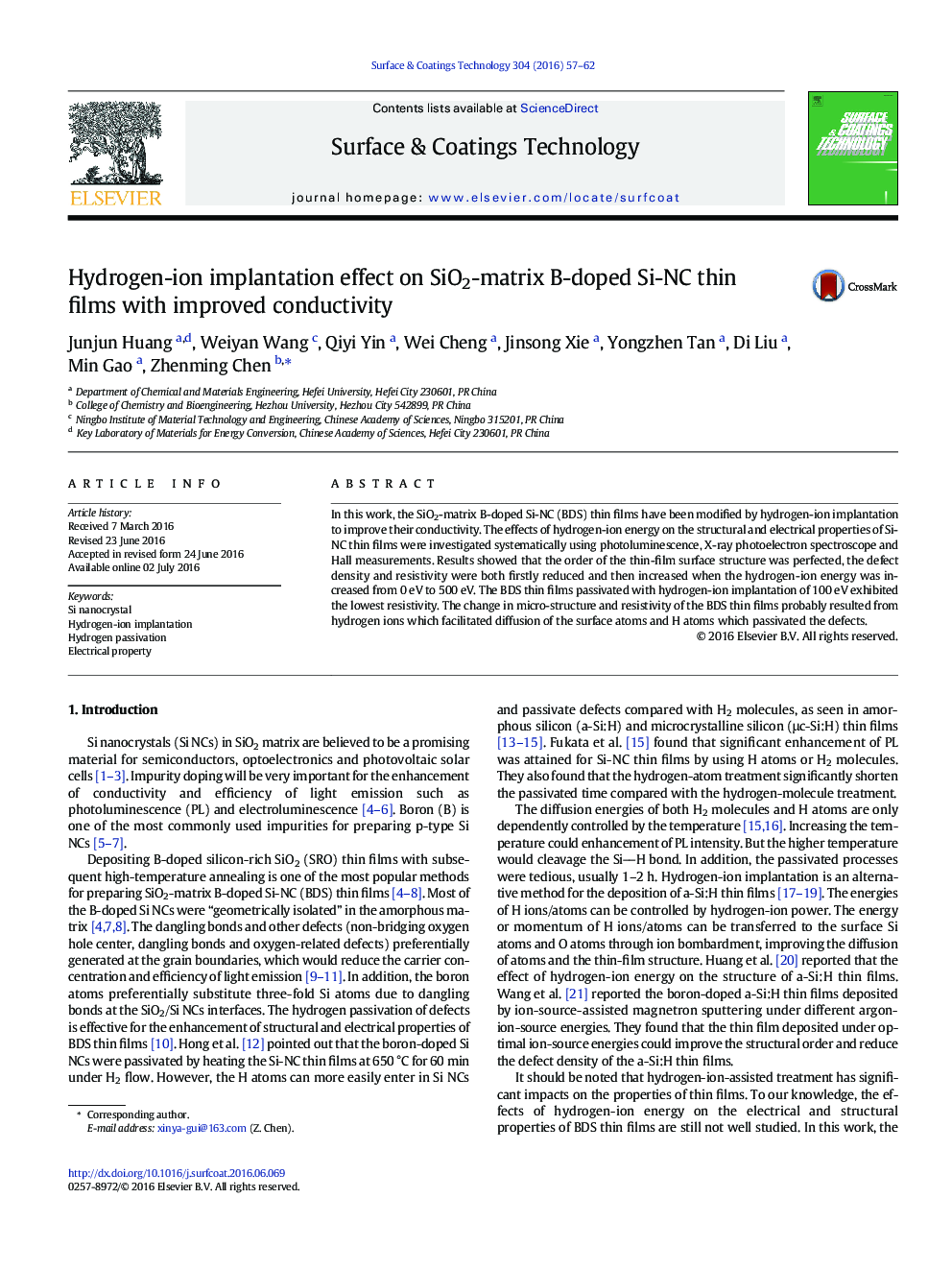| Article ID | Journal | Published Year | Pages | File Type |
|---|---|---|---|---|
| 8024837 | Surface and Coatings Technology | 2016 | 6 Pages |
Abstract
In this work, the SiO2-matrix B-doped Si-NC (BDS) thin films have been modified by hydrogen-ion implantation to improve their conductivity. The effects of hydrogen-ion energy on the structural and electrical properties of Si-NC thin films were investigated systematically using photoluminescence, X-ray photoelectron spectroscope and Hall measurements. Results showed that the order of the thin-film surface structure was perfected, the defect density and resistivity were both firstly reduced and then increased when the hydrogen-ion energy was increased from 0Â eV to 500Â eV. The BDS thin films passivated with hydrogen-ion implantation of 100Â eV exhibited the lowest resistivity. The change in micro-structure and resistivity of the BDS thin films probably resulted from hydrogen ions which facilitated diffusion of the surface atoms and H atoms which passivated the defects.
Related Topics
Physical Sciences and Engineering
Materials Science
Nanotechnology
Authors
Junjun Huang, Weiyan Wang, Qiyi Yin, Wei Cheng, Jinsong Xie, Yongzhen Tan, Di Liu, Min Gao, Zhenming Chen,
